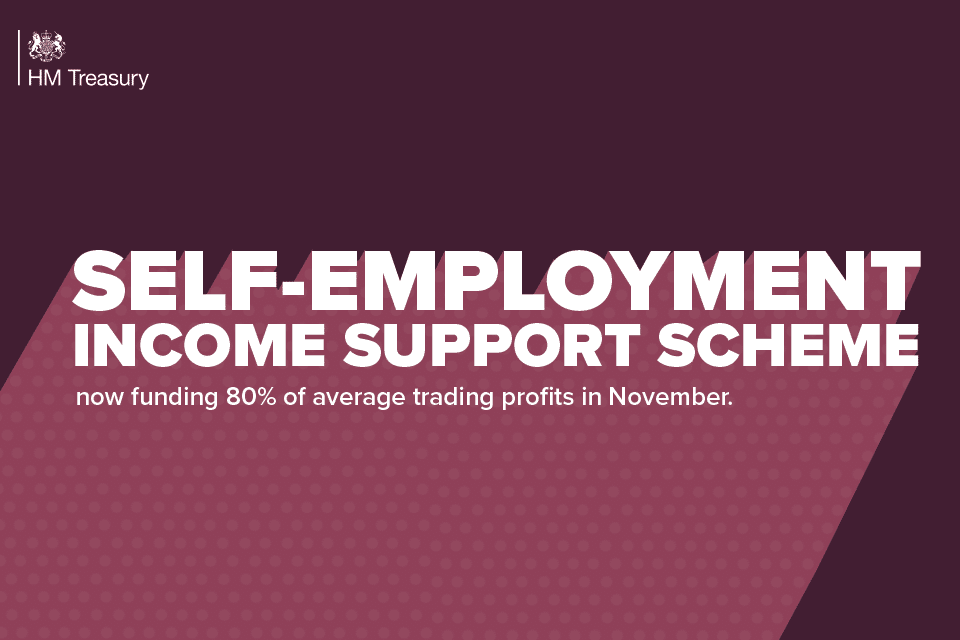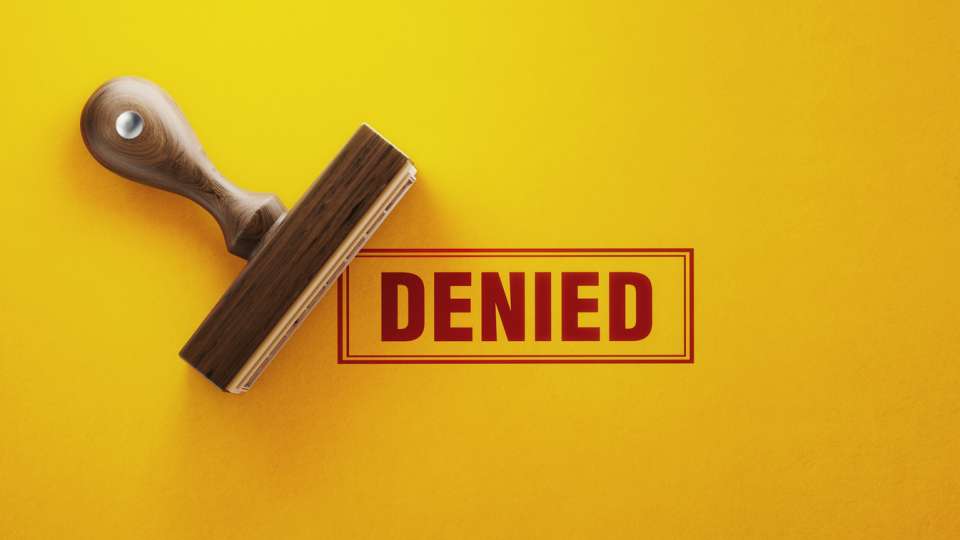Being your own boss has its perks. You have the freedom and flexibility to fit work around you. But it also means you’re in charge of your own financial future, which can seem daunting. You can't rely on your employer to set up your pension, and if you’re a sole trader, you won’t be able to benefit from employer pension contributions.
In the UK, there are now more than 4.8 million people who are self-employed, yet worryingly only 31% are saving into a pension. If you’re not saving into a pension, here’s why you should.
The information in this article is for your interest and to help you make your own decisions, but it isn’t personal advice. If you’re unsure, please seek financial advice. Money in a pension is not usually accessible until age 55 (57 from 2028).
Not saving for retirement is a huge risk if you don’t plan to work forever. You could end up sacrificing your quality of life and being reliant on the State Pension. The good news is, even in these uncertain times, there are some tips you could follow for a hopefully brighter future.
Paying in small amounts regularly can also help manage the volatile markets we’re experiencing at the moment. This is because one month your payment might be invested when the market is riding high and the next when it’s slipped, and vice versa. This means the price you pay should average out over time (known as pound cost averaging). Remember though that all investments rise as well as fall in value, so you could get back less than you invest.
You also have the option to pay in lump sums. So when you’re doing well you can make larger one-off payments to give your pension a boost. This approach could be particularly appealing if you’re just getting your company off the ground, and can’t yet commit to paying in a set amount each month. You can always set up monthly payments once things even out a little.
For any personal contribution you want to make, the government will cover 20% of it for you, known as basic-rate tax relief. Say you wanted to make a one-off payment of £1,000, you’d actually only need to pay in £800 and the government will pay the rest (£200). If you pay tax at a higher rate you could even claim back up to a further 25% through your self-assessment tax return.
For your personal pension contributions to benefit from tax relief, you can only contribute as much as you earn each tax year, or £3,600 if this is greater.
If you’re approaching retirement age you might think it’s too late to start saving. But you’d be wrong. As long as you’re a UK resident, you can benefit from this generous incentive right up until you reach 75.
If you’re employed by your own limited company you can also pay into a pension and normally offset the contributions against the company’s corporation tax bill. These are known as employer contributions but you yourself won’t receive tax relief on these payments. Tax rules can change and benefits depend on your individual circumstances. If you’re a Scottish tax payer different tax rates and bands apply.
With the SIPP, you’ll have a wide range of investments to choose from. Or if you don’t have the time to build a portfolio from scratch, you could consider choosing from one of our pre-made portfolios. After all – we know that running a business means spare time is valuable.
In the SIPP, payments are also flexible so you can stop and restart them whenever you need to without charges. You can set up monthly payments from just £25 a month, which includes basic-rate tax relief on personal contributions so you only need to pay in £20. You also have the option to make one off payments to suit your circumstances.
You can also combine any previous pensions you might have had with employers, by transferring them into the same online SIPP account. Having everything in one place could make managing your finances much easier. Just check for any exit fees or if you’ll lose any benefits or guarantees before you go ahead.
In the UK, there are now more than 4.8 million people who are self-employed, yet worryingly only 31% are saving into a pension. If you’re not saving into a pension, here’s why you should.
The information in this article is for your interest and to help you make your own decisions, but it isn’t personal advice. If you’re unsure, please seek financial advice. Money in a pension is not usually accessible until age 55 (57 from 2028).
Why pensions matter when you’re a business owner
If you work for someone else, usually your employer will automatically pay into a workplace pension scheme on your behalf. But if you work for yourself, you don’t have this advantage and the responsibility to set up and start saving into a pension falls entirely on your shoulders.Not saving for retirement is a huge risk if you don’t plan to work forever. You could end up sacrificing your quality of life and being reliant on the State Pension. The good news is, even in these uncertain times, there are some tips you could follow for a hopefully brighter future.
Regular saving – a little goes a long way
As a limited company owner, or a sole trader, regularly saving into a pension might not seem that appealing. Possibly because your income fluctuates from one month to the next. But thankfully, some pension schemes, like the SIPP, can accommodate for this. You can make relatively small monthly payments and even stop them completely if you’re having a particularly bad month. The first step is setting something up.Paying in small amounts regularly can also help manage the volatile markets we’re experiencing at the moment. This is because one month your payment might be invested when the market is riding high and the next when it’s slipped, and vice versa. This means the price you pay should average out over time (known as pound cost averaging). Remember though that all investments rise as well as fall in value, so you could get back less than you invest.
You also have the option to pay in lump sums. So when you’re doing well you can make larger one-off payments to give your pension a boost. This approach could be particularly appealing if you’re just getting your company off the ground, and can’t yet commit to paying in a set amount each month. You can always set up monthly payments once things even out a little.
Tax relief - a free boost from the government
The tax benefits you can get from pensions make them one of the most tax efficient accounts you can have.For any personal contribution you want to make, the government will cover 20% of it for you, known as basic-rate tax relief. Say you wanted to make a one-off payment of £1,000, you’d actually only need to pay in £800 and the government will pay the rest (£200). If you pay tax at a higher rate you could even claim back up to a further 25% through your self-assessment tax return.
For your personal pension contributions to benefit from tax relief, you can only contribute as much as you earn each tax year, or £3,600 if this is greater.
If you’re approaching retirement age you might think it’s too late to start saving. But you’d be wrong. As long as you’re a UK resident, you can benefit from this generous incentive right up until you reach 75.
If you’re employed by your own limited company you can also pay into a pension and normally offset the contributions against the company’s corporation tax bill. These are known as employer contributions but you yourself won’t receive tax relief on these payments. Tax rules can change and benefits depend on your individual circumstances. If you’re a Scottish tax payer different tax rates and bands apply.
What counts as earnings if you’re a sole trader or a business owner?
This depends. It won’t include things like dividend payments. As a sole trader your earnings are any profits before tax which you declare to HMRC. If you work for your own limited company this includes any salary paid by the company, plus any taxable benefits, before tax.4 pensions for business owners
You and your business might have been hit hard over the last few months, and paying into a pension might seem like a stretch. But it’s important to remember that the State Pension alone won’t be enough for most people to live off – you’ll likely need other savings too. Here are some of your options for setting up a pension.1. National Employment Savings Trust (NEST)
In most cases you can join NEST even if you’re self-employed or the sole director of a company that doesn’t employ anyone else. NEST is a workplace pension set up by the government. It accepts contributions from as little as £10 a month and they will automatically claim basic rate tax relief on any personal contributions paid into your pension. You’re also able to select from a range of funds based around your age and when you join.2. Personal pensions
When you pay into a personal pension you’re normally able to choose your own investments, but the choice is often limited compared to other personal pension schemes (e.g. SIPPs). Normally, you can make regular or lump sum payments but the minimum amount you can pay in depends on the provider you choose.3. Stakeholder pensions
This is a type of personal pension which allows you to add smaller payment amounts. They normally offer a default investment fund but they don’t offer a wide range of investments if you want to choose your own. They also have to offer flexible pension payments, meaning you can stop and start payments if you need to.4. Self-invested personal pensions (SIPPs)
A SIPP is another type of personal pension but it offers more flexibility. It allows you to choose the specific investments that make up your pension fund, so you’re in control.With the SIPP, you’ll have a wide range of investments to choose from. Or if you don’t have the time to build a portfolio from scratch, you could consider choosing from one of our pre-made portfolios. After all – we know that running a business means spare time is valuable.
In the SIPP, payments are also flexible so you can stop and restart them whenever you need to without charges. You can set up monthly payments from just £25 a month, which includes basic-rate tax relief on personal contributions so you only need to pay in £20. You also have the option to make one off payments to suit your circumstances.
You can also combine any previous pensions you might have had with employers, by transferring them into the same online SIPP account. Having everything in one place could make managing your finances much easier. Just check for any exit fees or if you’ll lose any benefits or guarantees before you go ahead.




